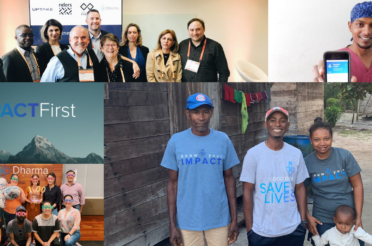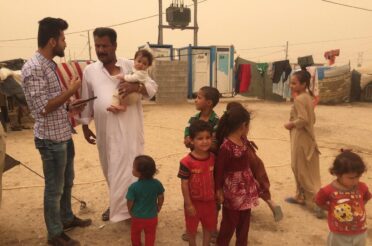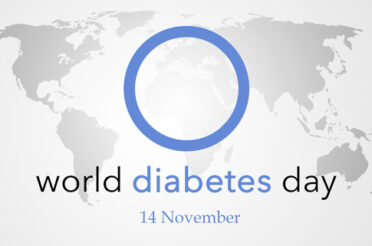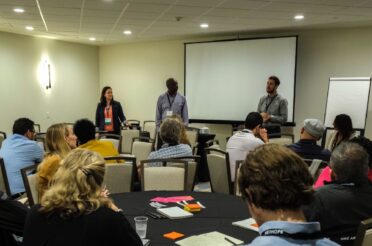MAJI SAFI MEANS CLEAN WATER IN SWAHILI
In the wake of Menstruation Hygiene Day 2019, we wanted to highlight the incredible work that our client Maji Safi Group (MSG) is doing in Tanzania. In the 6 and a half years since MSG was born, they have helped more than 365,000 people in the Mara Region of rural Tanzania learn safe sanitation, hygiene and water practices. In a region of the world where 99% of the water is contaminated, MSG users have mastered creative education techniques through art, song, and dance that inspire people to bring life-saving practices into their daily lives. The primarily female community health educators of MSG teach more than 300 people a day and have, in their tenure, reached more than 100 villages.
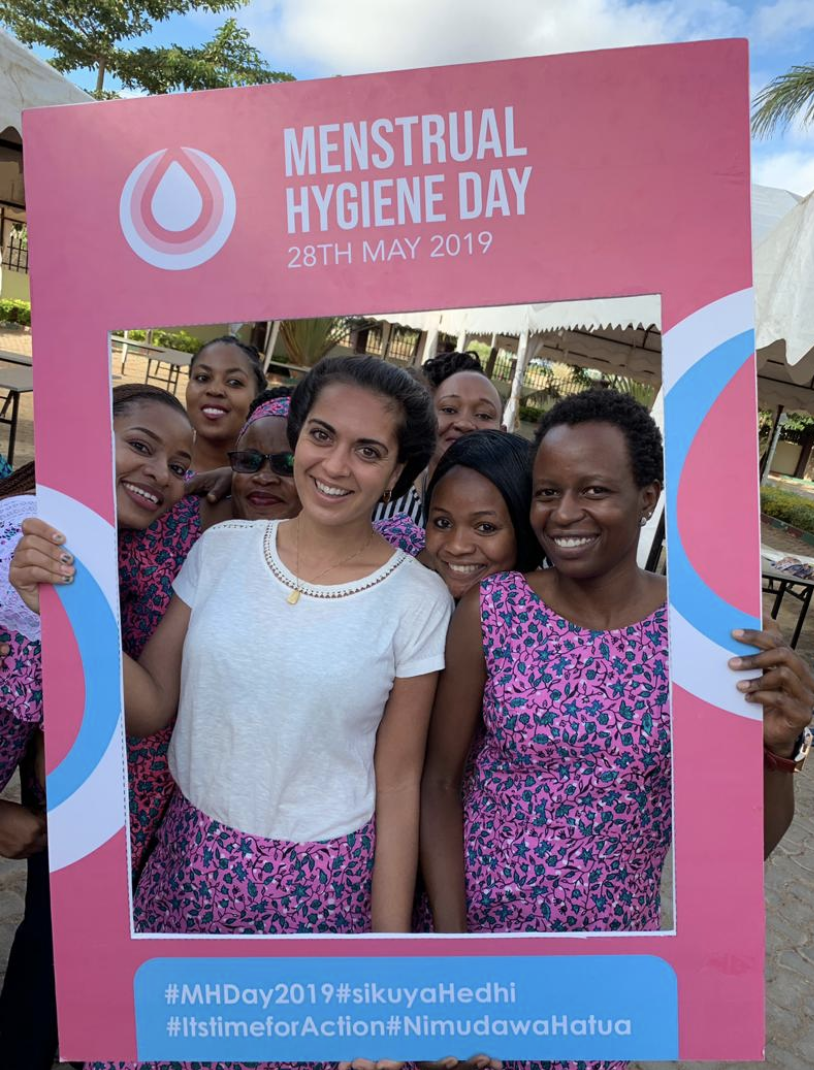
Within Maji Safi Group’s core beliefs lies an emphasis on female hygiene and health. They work to lift stigma away from female hygiene practices in communities in order to empower girls and help them reach their full potential as leaders and educators. Tanzania has historically viewed female hygiene as taboo. Women and girls often choose to miss class for fear of being ridiculed and shamed during menstruation. Inadequate access to necessary sanitary materials severely impacts attendance rates and creates an endless cycle of disempowerment amongst young girls in the Mara Region.
Community Health Educators offer after-school programs to young women between the ages of 11 and 18 to meet and learn about good female hygiene and health practices in order to demystify the shroud surrounding the natural processes of puberty in young girls. Females in surrounding communities are also invited to attend the Saturday meetings at the Maji Safi Group office, where young women are given a safe space to learn, share, and seek advice from educators and peers. Helping to increase attendance rates among young girls and women, participants receive reusable sanitary products that promote proper hygiene. Maji Safi Group’s Female Hygiene Program is one of the largest in the Lake Victoria Zone and leads the charge in educating the community on the topic, collaborating with many national research initiatives and partners like the National Institute for Medical Research and UNICEF.
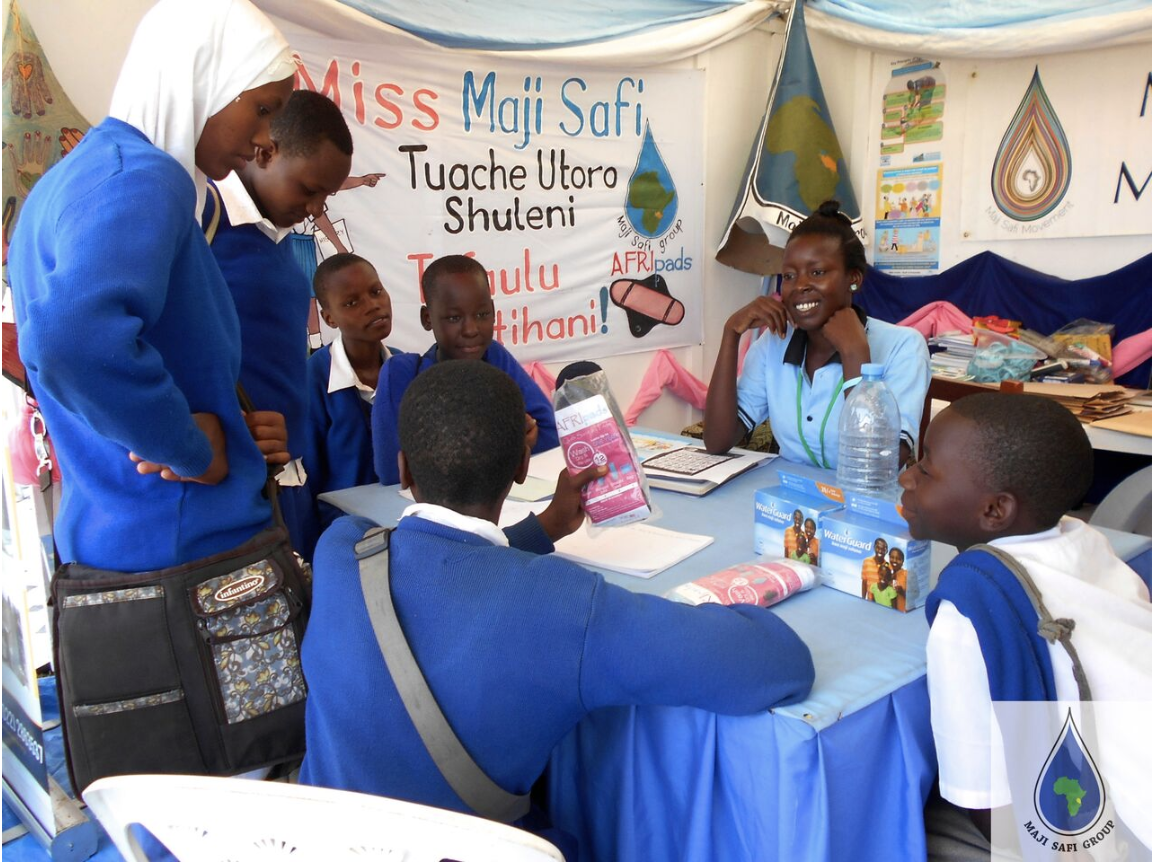
The Sustainable Development Goals (SDGs) outlined by the UN recognizes that there is a global need for improvement in Menstrual Hygiene Management (MHM). This need is addressed both implicitly and explicitly within 9 of the SDGs. The United Republic of Tanzania (URT) has agreed to address these development goals, nationwide, prioritizing cross-sector collaboration in order to support overall gender equality and improve access to basic services in their National Five-Year Development Plan. Through this cross-sector collaboration, specifically targeting developments in MHM, improved accessibility to clean materials, private toilet facilities, and safe methods of menstrual product disposal will positively and significantly impact female health.
In a recent blog post, New Perspectives on Menstruation from Menstrual Health Management Trainers in the Rorya District, MSG recaps an incredible one-week MHM seminar they conducted for their partners to expand education and awareness. This week-long training took place in April 2019, in Shirati, Tanzania, bringing together 66 participants from the Rorya District Council, Education and Community Development Office, Department of Health, teachers, hospital health workers, local private sector entrepreneurs, and other NGOs working with MSG in the district. The training focused on three main components:
- Managing menstruation hygienically
- Breaking the silence about menstruation
- Finding solutions to the safe reuse and disposal of feminine hygiene products
Two senior consultants with expertise in WASH (Water, Sanitation & Hygiene) and Health Promotion facilitated this MHM Trainers of Trainers Workshop in an effort to support this new program in the Rorya District. Following two earlier classes of trainers, 66 newly trained individuals walked away from this workshop, empowered and ready to disseminate their newfound knowledge within their respective communities, organizations, and workplaces.
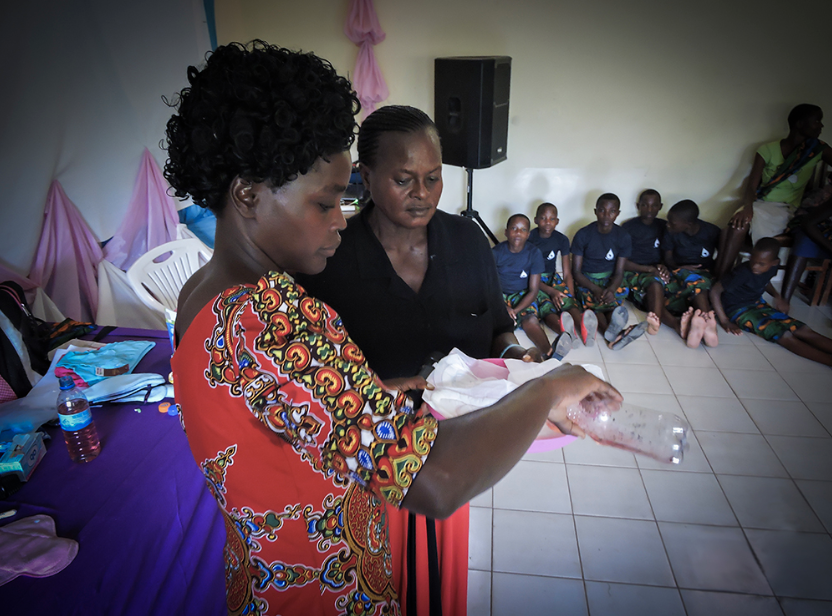
Be sure to check out Maji Safi Group’s website and their blog for more information and insights about the incredible work they are doing for women and girls in Tanzania.
